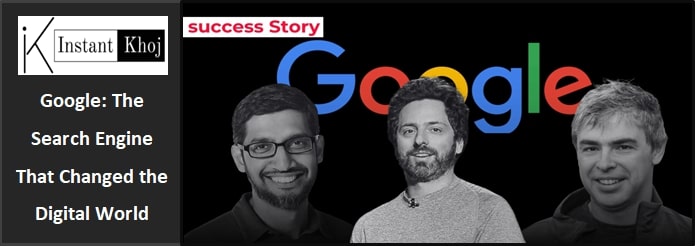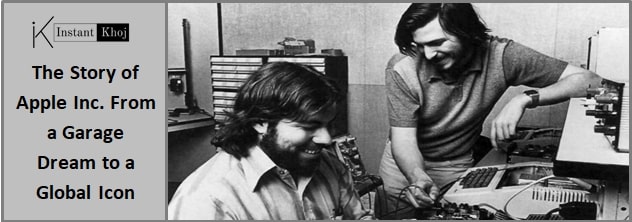Every time you search for a quick answer, check the traffic, or ask your smart speaker to play your favorite song, there’s a good chance Google is behind it. What started as a side project by two university students has become one of the most powerful and transformative companies in the world.
Humble Beginnings at Stanford
The story begins in 1995 at Stanford University, where Larry Page, a graduate student from Michigan, crossed paths with Sergey Brin, a fellow researcher. Their first interactions were far from friendly—both were strong-willed, opinionated, and analytical. But what they shared was a curiosity about a growing problem: the internet was exploding with information, and no one knew how to organize it effectively.
At the time, most search engines simply matched keywords. That led to lots of irrelevant results. Larry had a better idea—what if search results were based on how many other web pages linked to them? This method would reflect a page’s importance and credibility, similar to how academic citations work.
He called the system BackRub.
Birth of the Google Era
Soon, Sergey joined the project, and together they started running the search engine from Stanford’s servers. As their model gained traction, it began to overwhelm the university’s network. It was time to take things further.
In 1997, they renamed their system Google, a playful take on “googol”—a mathematical term for the number 1 followed by 100 zeros—symbolizing their goal of organizing vast amounts of information.
By 1998, Google was officially founded. The startup operated out of a garage in Menlo Park, California. Their search engine stood out for being fast, simple, and uncluttered, in contrast to the ad-heavy, noisy portals that dominated the web back then. The focus was clear: deliver the best results in the shortest time possible.
The Business Model That Changed Everything
Google wasn’t just building a better search engine—it was quietly building a business model that would redefine online advertising. In 2000, the company launched AdWords, a platform that displayed small, relevant text ads alongside search results.
These ads weren’t disruptive, but they were effective. And most importantly, they were based on user intent. This approach created an advertising engine so powerful that it would later drive billions in revenue and help fund Google’s rapid expansion.
Beyond Search: Products That Became Essentials
The early 2000s marked Google’s evolution into a multi-product powerhouse.
-
Gmail launched in 2004 with a game-changing 1GB of free storage.
-
Google Maps redefined how people navigated the world.
-
Google Earth offered a bird’s-eye view of anywhere on the planet.
-
Google News introduced algorithm-based headlines without human editors.
Then, in 2006, Google made a bold move—acquiring YouTube for $1.65 billion. It was considered risky at the time, but history proved otherwise. YouTube quickly became the heart of online video, and today it’s a cultural and commercial juggernaut.
Going Mobile: Android and the Smartphone Revolution
As the world shifted to mobile, Google responded with Android, an open-source operating system for smartphones. The strategy was clear—offer Android for free so it could be adopted globally.
And it worked. Android now powers the majority of smartphones worldwide. Combined with apps like Google Chrome, Drive, Docs, and Photos, Google became more than a search engine—it became the backbone of everyday digital life.
Rebranding and New Frontiers
In 2015, Google underwent a major restructuring. It became a subsidiary of a new parent company called Alphabet Inc., allowing its experimental ventures—like Waymo (self-driving cars), Verily (health tech), and DeepMind (AI research)—to grow under separate management.
At the helm of Google, Sundar Pichai emerged as the new CEO, bringing a calm, product-focused leadership style that continued to push Google forward.
Facing Challenges and Embracing AI
With power came responsibility—and scrutiny. Google has faced criticism over user privacy, market dominance, and its role in spreading misinformation. Governments have launched anti-trust lawsuits, and employees have staged protests over ethical concerns.
Still, Google continues to evolve.
In 2023, it unveiled Gemini, a family of generative AI models aimed at revolutionizing how users interact with information—not just searching for answers, but co-creating them with AI.
Final Thoughts: The Journey Continues
From a dorm room at Stanford to powering billions of daily interactions, Google’s rise is one of vision, innovation, and relentless focus on user experience. Its products have become part of how we live, work, learn, and connect.
And true to its founder’s philosophy, Google still believes it’s only the beginning.
Because in the world of Google, It’s always Day One.
Read more articles like this — Click here to explore now





One thought on “Google: The Search Engine That Changed the Digital World”